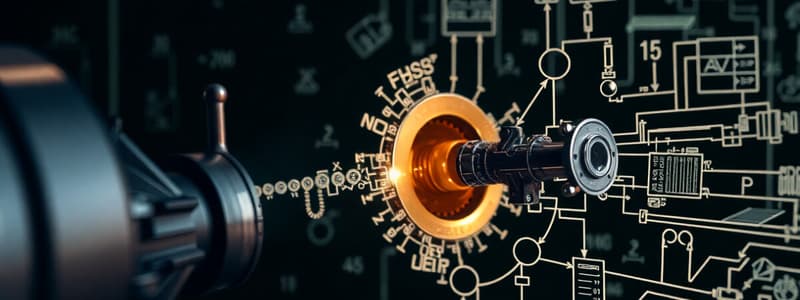Podcast
Questions and Answers
What formula represents the calculation of work done?
What formula represents the calculation of work done?
- Work = Energy x Time
- Work = Force x Distance (correct)
- Work = Mass x Acceleration
- Work = Power x Distance
Which of the following statements is true about work?
Which of the following statements is true about work?
- Work is done even if there is no movement.
- Work can only be done in electrical circuits.
- Work requires force to cause motion. (correct)
- Work is equal to energy divided by time.
How is power defined in mechanical and electrical terms?
How is power defined in mechanical and electrical terms?
- Power is the amount of energy consumed.
- Power compares the efficiency of machines.
- Power is the rate of doing work. (correct)
- Power is the total work done over time.
In the context of electrical power, what is the relationship between watts, volts, and amps?
In the context of electrical power, what is the relationship between watts, volts, and amps?
How many watts are in one kilowatt?
How many watts are in one kilowatt?
Flashcards are hidden until you start studying
Study Notes
Work
- Work is done when a force causes an object to move.
- The amount of work done is directly proportional to the force applied and the distance the object moves.
- Work is calculated by multiplying force and distance: Work (W) = Force (F) x Distance (D)
- In the English system, work is measured in foot-pounds (ft/lbs).
- In the metric SI system, work is measured in joules (1 joule = 1 newton x 1 metre).
Power
- Power refers to the rate at which work is done.
- In electrical systems, power is measured in Watts (W).
- For Direct Current (DC): 1 Watt = 1 volt x 1 amp
- Power is calculated by multiplying voltage and current: P = V x I.
- 1 kilowatt (kW) is equal to 1,000 Watts.
- Horsepower is a unit of work, often used to rate electrical motors.
- One horsepower equals 746 Watts.
Studying That Suits You
Use AI to generate personalized quizzes and flashcards to suit your learning preferences.




